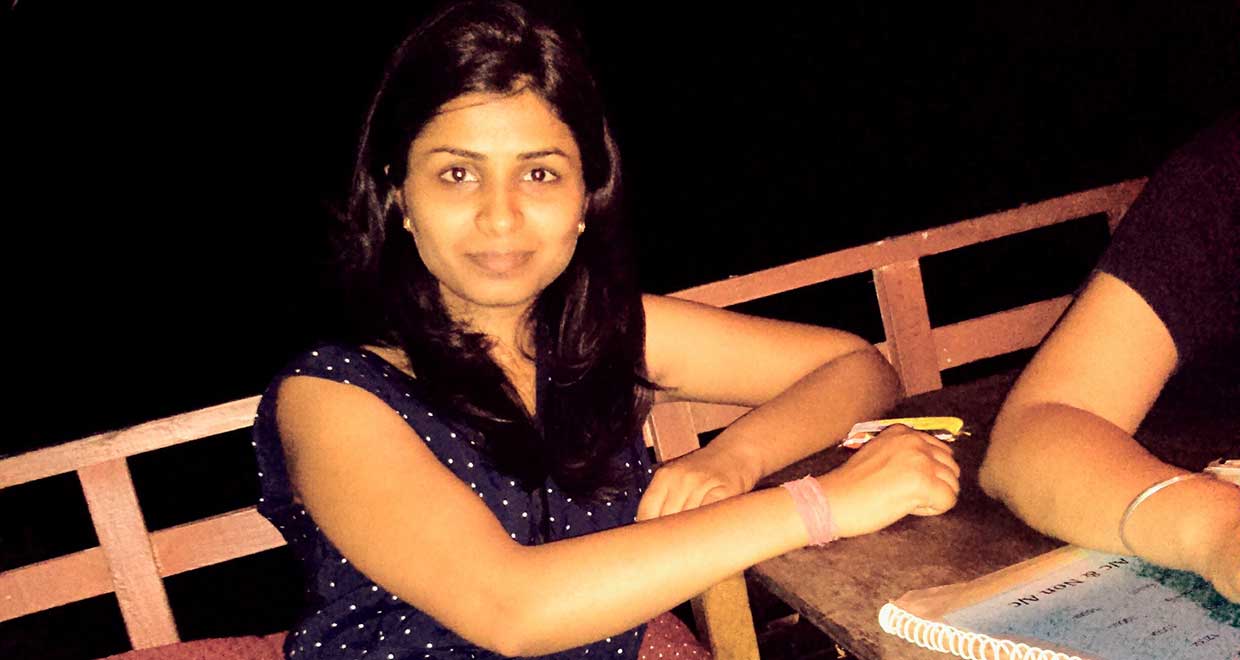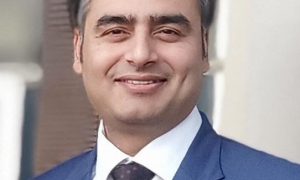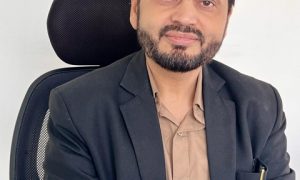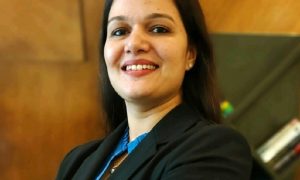Kalpana Garg graduated with B.Tech degree from GGSIPU in 2009. Her interest in law led her to join Rajiv Gandhi School of Intellectual Property Law (IIT, Kharagpur) and pursue LL.B. During law school, she participated in various co-curricular activities including moot court competitions, debates, conferences. She also has a couple of publications to her name. Soon after Graduation she started working as an in-house counsel at Hero MotoCorp and currently works as a Deputy Manager-Legal there.
In this interview, she talks about:
- Pursuing Law after Engineering
- Law school experience at RGSIPL, IIT Kharagpur
- Appointment at Hero MotoCorp
Given that most of our readers belong to legal fraternity, how would you introduce yourself to them?
An engineer and a lawyer working as In-house IP counsel for a leading two wheeler manufacturer for the past 2.5 years handling matters related mostly to IP laws. My hobbies involve reading, writing, and traveling. I believe in Carpe Diem philosophy and live every day to be inspired by anything or everything. I love debating for hours together and gain knowledge and build my opinions over matters with diverse topics.
Legal studies are still not a mainstream career option for a lot of students. Having done B.Tech from GGSIPU, what motivated you to choose law as a career? How did you prefer Law after Engineering?
Before pursuing Law, I was an engineering student and quite good at that, trust me. Discussions related to varied things happening around such as criminal cases, company related matters and other legal matters during college hours and hostel hours made me realize my acumen towards legal matters. Saying I preferred law over engineering would be a misstatement as I didn’t choose law over engineering. I preferred to apply the knowledge of engineering concepts and law to understand things from a novel perspective. I completed my B.Tech from GGSIPU in 2009 and post that, joined law school (Rajiv Gandhi School of Intellectual Property Law) at IIT Kharagpur.
During the tenure of my engineering days, till the third year, I was inclined towards pursuing higher studies in the field of my engineering. During fourth year of engineering, few subjects of second last semester were dedicated towards teaching How Patent regime affects the technological scenario; the significance of prior art and the patent system in general. Further, that was the time when TVS vs. Bajaj was in full swing, and the papers would be full of the detailed analysis of how patents were going to be the game changer. And, being an avid and voracious reader, the more I read about it, the more it convinced me that I would like to work in a field where working within IP regime would describe my passion in one sentence line.
Were you in double minds before joining Rajiv Gandhi School of Intellectual Property Law?
Before joining any college, any course or doing even an internship at an organization, an applicant must be sure of what he/she wants from the course/college/organization and how much the course/college/organization would be able to provide. With Rajiv Gandhi Law School, I was convinced that there would be no dearth of learning and opportunities suiting my requirements.
How did you get through to Rajiv Gandhi School of Intellectual Property Law?
Rajiv Gandhi School of IP Law at IIT Kharagpur conducts an extensive process to select its candidates for future at Law School. Initial rounds involve a written test with three sections Aptitude and analytical Test; Domain-based Test and Essay writing. Post that, GD/PI session is conducted for the students selected out of the written test. Group discussion round involves sharing your opinion regarding a particular legal scenario and defending your opinion in the discussion panel. Personal Interview round involves questions based on your educational domain, the reason behind aspiration to join legal fraternity, etc.
For admission to Law school at IIT Kharagpur, the applicant should possess one of the following degrees with or without work experience.
Degree Requirement:
First-class Bachelors Degree in Engineering/Technology/Medicine or equivalent;
Or, First class Masters Degree in Science Or Pharmacy or equivalent;
Or, First Class MBA Degree with any of the above.
What were your areas of interest during your graduation? How did you go about developing expertise and knowledge in these areas?
During law school, I was more inclined towards Intellectual property law, Constitution and economic perspective towards law. Expertise is developed over the years and it’s an ongoing process. However, knowledge in a field is developed through committed persuasion involving writing detailed articles, papers, participating in moot courts and interning in the field of interests.
For gaining knowledge, I participated in a National Moot Court involving IP case problem, wrote several articles for college law journal and other journals. I interned with IP law firms and IP cell of companies for understanding the nuances of IP law. Furthermore, awareness regarding the changes in IP regime related to law and disputes was one of the goals and for such perspective, followed IPAB Case directory, Finnegan case updates were my bookmarks. Try to participate in national and international conferences as the interactive environment boost your knowledge and lets you defend your opinion and make new ones in the process.
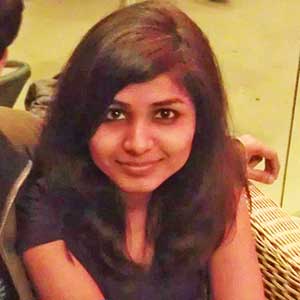 As a law student which activities did you participate in? Tell us about your law school journey from the 1st year till your final year. Did you have any guidance on how to go about your academics, co-curricular activities, and internships?
As a law student which activities did you participate in? Tell us about your law school journey from the 1st year till your final year. Did you have any guidance on how to go about your academics, co-curricular activities, and internships?
During my tenure as a law student, I always believed in maintaining a steep learning curve in lecture rooms as well as outside them. I participated in National Moot Court competition, Parliamentary debates, essay writing and conferences mostly. Experience at Law school was full of excitements ranging from extra-curricular participation to organizing moot court within the campus, from classroom assignments to attending guest’s lectures by famous legal scholars. Every activity inside and outside the law school leaves you with a quest to learn more and achieve more.
During law school, the unparalleled support and guidance from Professors and seniors led me to expand my horizon towards academic and extra-curricular activities. Support and guidance from batch mates and friends shouldn’t go without notice.
What kind of internships did you do while you were a student?
Internships for a law student are as important as practical classes for a theory session. I interned with practicing lawyers, law firms and companies to gain exposure of the kind of legal work involved. Internship in law firms and with practicing lawyers gives hands on experience on litigation, case studies and how to do legal research for case laws.
Did you find that your law school education had prepared you sufficiently for the many tasks you were required to execute during your internships and later at your job?
Theoretical experience always differs from practical experience. Law school education prepares you for a lot of things but job or internship comes with scenarios where working involves thinking on feet, working on deadlines and sometimes explaining legal interpretations to people with non-legal background. Preparing for such scenarios begins early these days wherein internships and summer projects narrow down the gap of learning between law school and job.
You started your career at Hero MotoCorp and you currently work as a Deputy Manager there. What had contributed towards this appointment? Please tell us the recruitment process at Hero MotoCorp.
Recruitment process at Hero MotoCorp involves on campus and off campus placements and the overall process is consistent and transparent. I was selected by Hero MotoCorp in their on campus drive.
Many lawyers would say that the actual learning takes place in the years of practice. What was the case in your situation?
Litigation and working in-house are too different grounds and involves different levels of learning. Though in my personal opinion, it actually boils down to one’s passion towards a field and field of interest. I won’t say one is better compared to other however; the pace of learning is different.
Lastly, what would be your parting message for our readers?
First and foremost, do not pursue law as a backup option or do not pursue it because the family is full of lawyers. Pursue legal studies because you desire to be a lawyer and see yourself as no one else. And, be respectful and honest towards this profession as it gives you the power to bring justice, to bring a change in the society.

